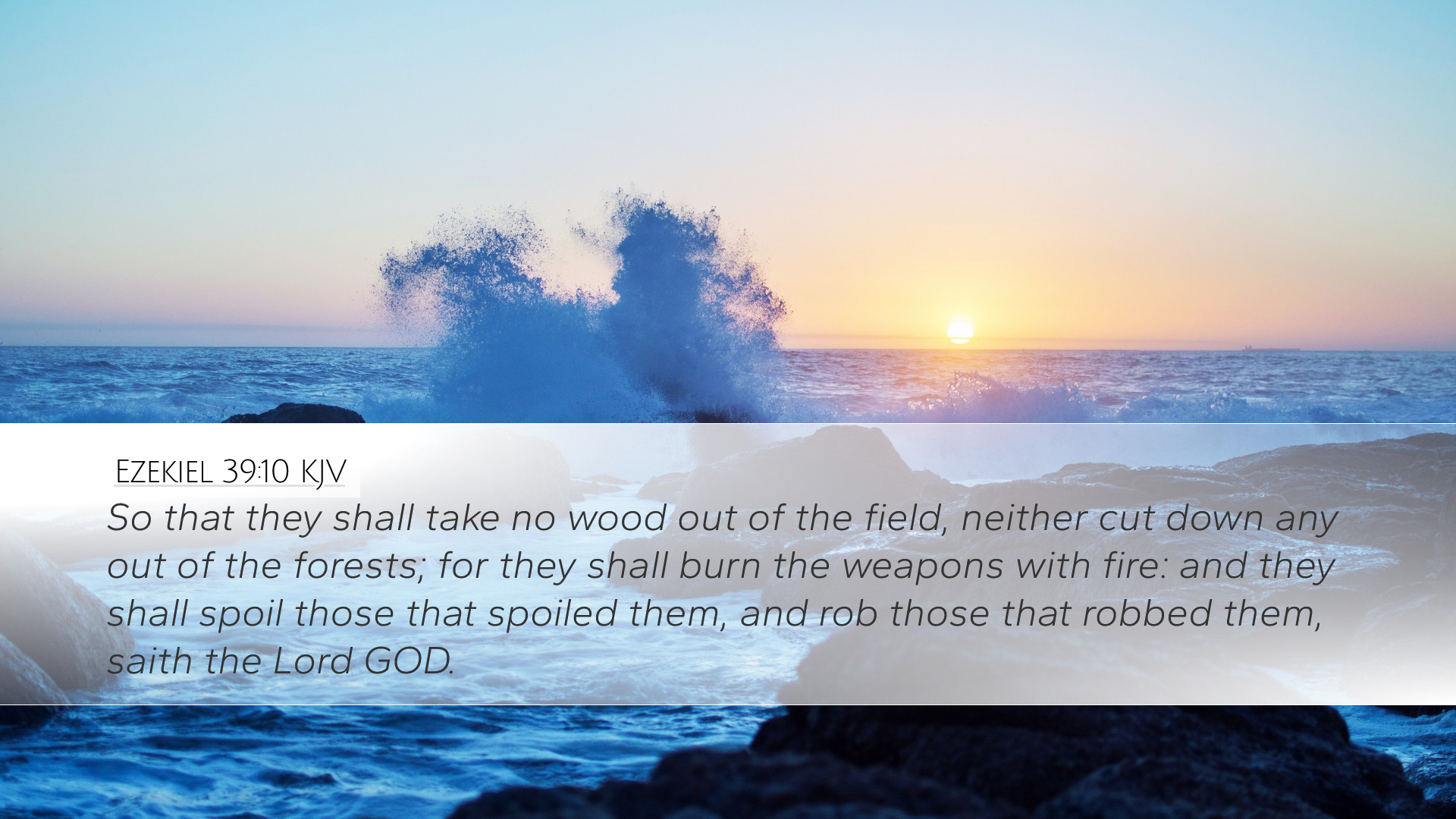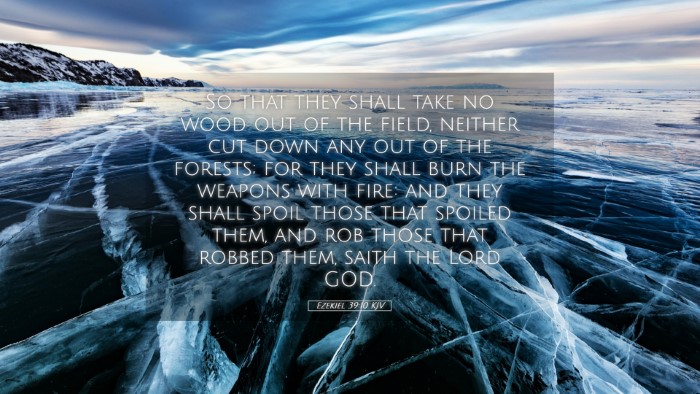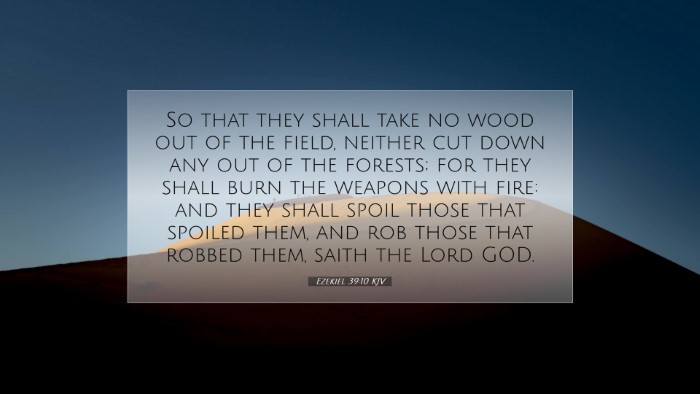Ezekiel 39:10 - Commentary Summary
Bible Verse: "So that they shall take no wood out of the field, neither cut down any out of the forests; for they shall burn the weapons with fire; and they shall spoil those that spoiled them, and rob those that robbed them, saith the Lord God."
Introduction
This verse occurs within a broader prophecy in Ezekiel that addresses the restoration of Israel and the destruction of its enemies. The imagery of weapons being burned signifies a transformative shift from conflict to peace. The commentaries from notable public domain theologians shed light on various aspects of this scripture that are invaluable for pastors, students, and scholars.
Contextual Background
- Historical Setting: Ezekiel's prophecies were delivered during Israel's Babylonian exile. The impending judgment upon Israel’s enemies is underscored as part of God’s divine plan.
- Thematic Significance: The themes of judgment, restoration, and divine sovereignty are prevalent in this chapter, marking a shift towards hope for the Israelites.
Insights from Matthew Henry
Matthew Henry elaborates that this verse represents the culmination of God’s promise to Israel, illustrating the reversal of their fortunes. The weapons of warfare symbolize the means of destruction, now rendered useless. Henry emphasizes two key points:
- Provision and Peace: Henry points out that the Israelites will no longer rely on traditional means of warfare, instead, they will depend on God’s provision, highlighted in the cessation of need for wood to sustain conflict.
- God’s Justice: The idea of spoiling the spoilers reflects divine retribution, indicating that those who have wronged God’s people will themselves be held accountable.
Insights from Albert Barnes
Albert Barnes focuses on the prophetic nature of Ezekiel’s words, arguing that they signify a profound shift in the spiritual and physical realities for God’s people. Barnes makes several noteworthy observations:
- Destruction of Weapons: He interprets the burning of weapons as a divine act suggesting that the power once wielded by enemies will be of no consequence against God’s people. This act also symbolizes total victory.
- Vengeance and Restoration: Barnes connects the spoiling of the spoilers to an assurance of restoration for the Israelites. It represents a divine guarantee that justice will be served, aligning with God’s covenant promises.
Insights from Adam Clarke
Adam Clarke provides a detailed exegesis of the language used in this verse, asserting that the imagery speaks to a time of flourishing for Israel. Clarke emphasizes the practical aspects of the prophecy:
- Sustaining Peace: Clarke notes that the absence of need for firewood suggests a state of unending peace, contrasting with the historical cycles of war that have plagued Israel.
- Theological Implications: Clarke connects this passage to the broader narrative of God’s sovereignty, indicating that the restoration is not just physical but deeply spiritual, affirming the covenant between God and Israel.
Theological Reflections
The interpretation of Ezekiel 39:10 can yield profound theological insights relevant for contemporary Christendom:
- Transformation through God’s Intervention: The transition from war to peace signals the transformative ability of God’s intervention in human affairs, indicative of the gospel message.
- Judgment and Redemption: This prophetic assurance reminds believers that God’s justice is integral to His redemptive plan, assuring them that evil will ultimately be dealt with.
Conclusion
Ezekiel 39:10 stands as a powerful proclamation of hope and divine justice. Combining insights from Henry, Barnes, and Clarke reveals the multifaceted nature of this promise, highlighting God's sovereignty and the transformation awaiting His people. Pastors and theologians can draw on these insights to encourage and edify their communities about the continual faithfulness of God even amid trials.


